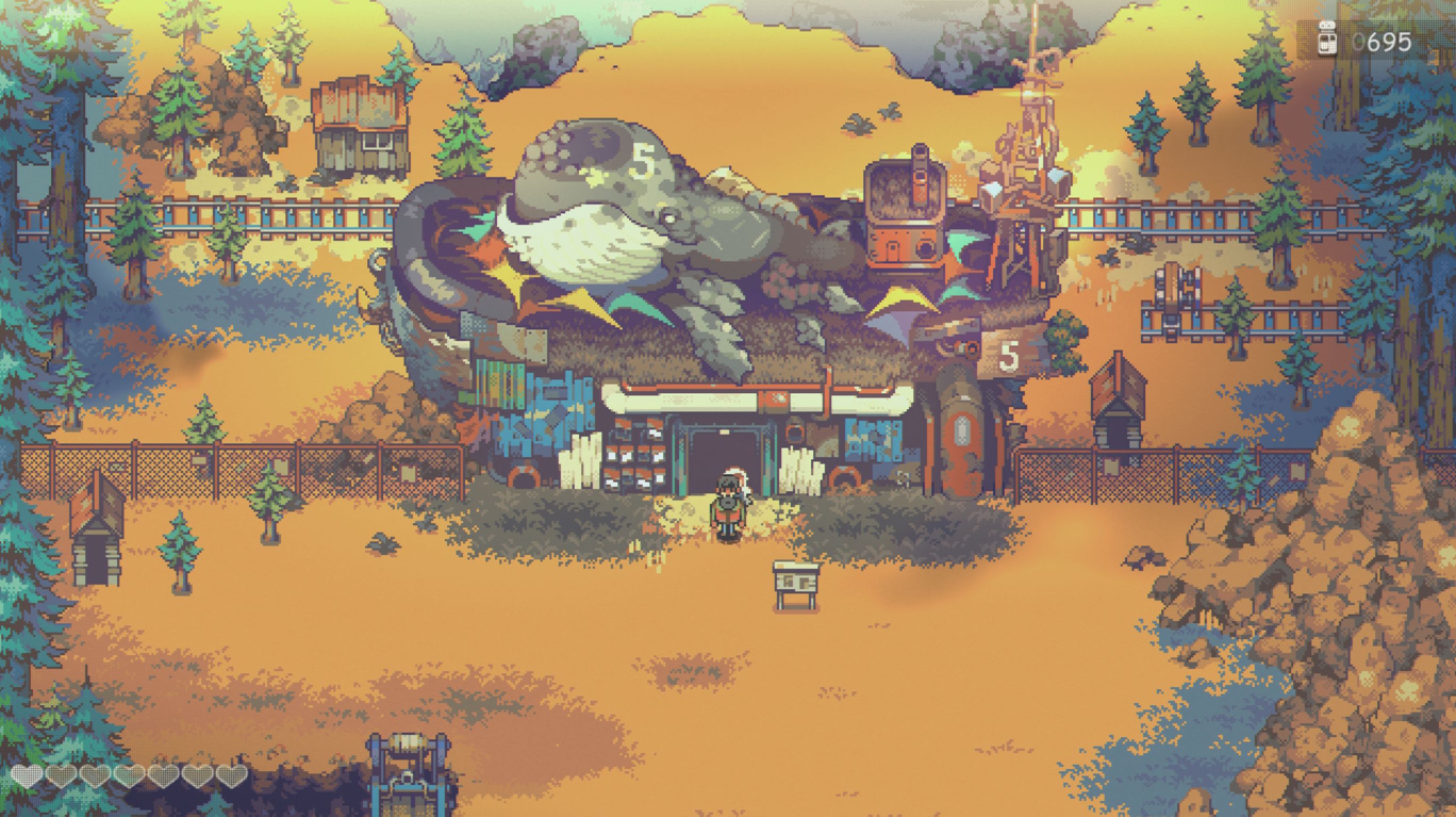Our Verdict
Worth playing for the atmosphere even though its pace and plot are uneven.
PC Gamer's got your back
Set in a world where humanity clings to pockets of civilization, Eastward takes inspiration from old RPGs and the likes of Earthbound, Zelda, and Studio Ghibli films to create beautifully desolate locations filled with a mix of puzzles and action. Despite looking like a pixelated old-school RPG it's utterly gorgeous, cramming detail into each environment just like a Ghibli movie. It's so much a tribute to the famed Japanese animation studio that you can find a version of Hayao Miyazaki himself hiding out in the starting town of Potcrock Isle.
What is it? Modern homage to JRPG classics
Expect to pay: $25/£22
Developer: Pixpil
Publisher: Chucklefish
Reviewed on: Intel Core i5-8250U, Intel HD Graphics 620, 8GB RAM
Multiplayer? No
Out: Now
Link: eastwardgame.com
Eastward follows John, a silent miner who uses a frying pan both for cooking and hitting people, and Sam, a young girl with white hair (which is how you know she's mysterious). The two develop a father-daughter-like relationship as they eke out a living in the underground town of Potcrock Isle, but when they're exiled to the wastelands of the surface world, they discover that things up top aren't what they seemed. It takes a little while to get going, but really starts to take off when you leave the first area and deeper mysteries are introduced.
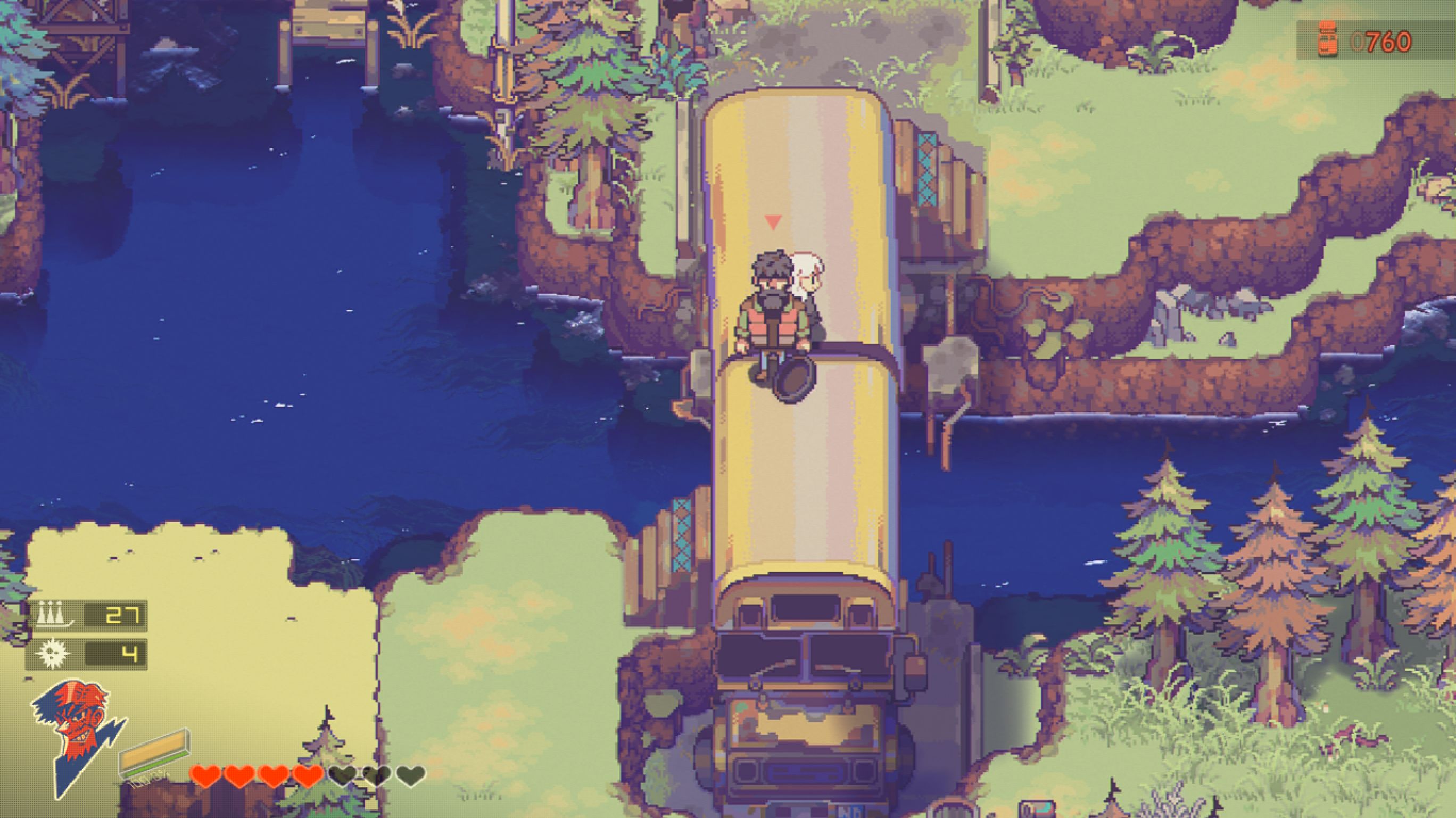
The puzzles are very Zelda-like—put weights on platforms to hold doors open, punt bombs across gaps, split the characters up to clear paths for each other—and strike a balance between being challenging without being too frustrating. Some sections do feel a little repetitive, and one part in particular where you have to solve puzzles at speed to avoid being consumed by a spreading miasma made me step away for a second to cool down. It's not that the puzzles themselves are difficult, but there isn't enough time to assess and complete them before dying. The tension was ruined by repetition and frustration, but that kind of thing is thankfully rare in Eastward.
The monsters are pretty cute, like the waddling mushrooms and bomb-spitting duck plants, and can usually be taken down with a few pan strikes. Bosses all have some kind of gimmick to solve first—to coax them out of hiding or get them to stand still so you can give them a good pounding. John's trusty frying pan has a satisfying thwack but can be hard to aim, and switching between that and the gun can slow you down which led to me dropping my guard on more occasions than I'd like to admit. However, swapping between John and Sam to use her energy blasts is incredibly quick and helps keep things fresh.
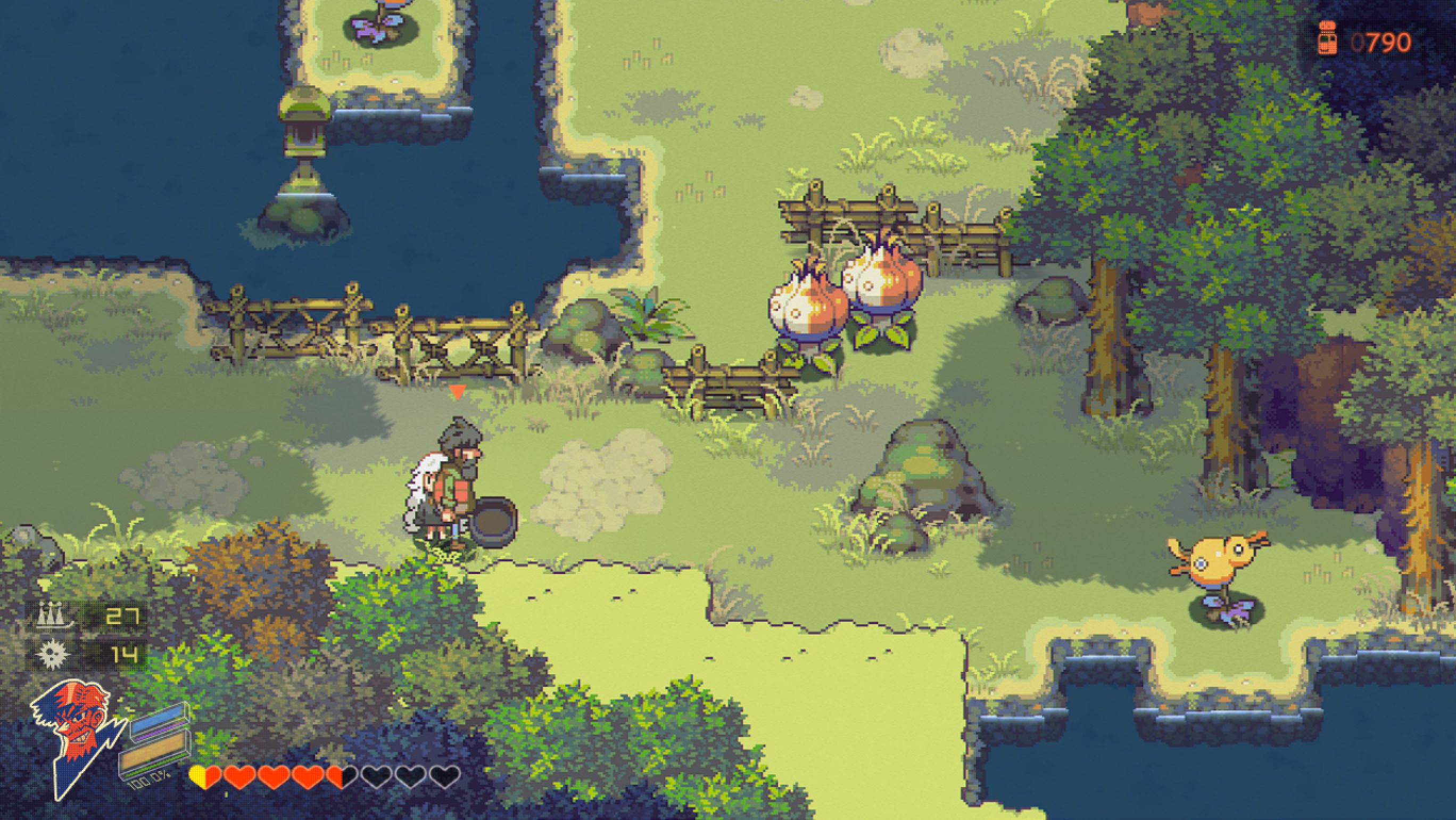
Where Eastward really excels is its atmosphere. It somehow straddles that line between feeling both retro in its pixels, and modern with its detail and lighting. New Dam city is a highlight with Japanese-style houses and alleyways all crowded together but still overflowing with potted plants and power lines. Other areas are unsettling, and that unease creeps up on you as you move deeper. One moment you're exploring a lovely forest, the next robotic eyes are following your every move. Eastward also does some fun things with the vibration settings on controllers—emulating the sensation of passing over train tracks or the feeling of a heartbeat in tense moments.
The music has stuck with me too, even after I stopped playing. It's a chiptune love letter to games of the '90s that is no doubt going to find its way into a lot of 'lofi chill beats to study to' playlists. The text design is also fantastic—speech bubbles shake with surprise or pip slowly during tense moments. It's a masterclass on how to give characters personality without voice acting.
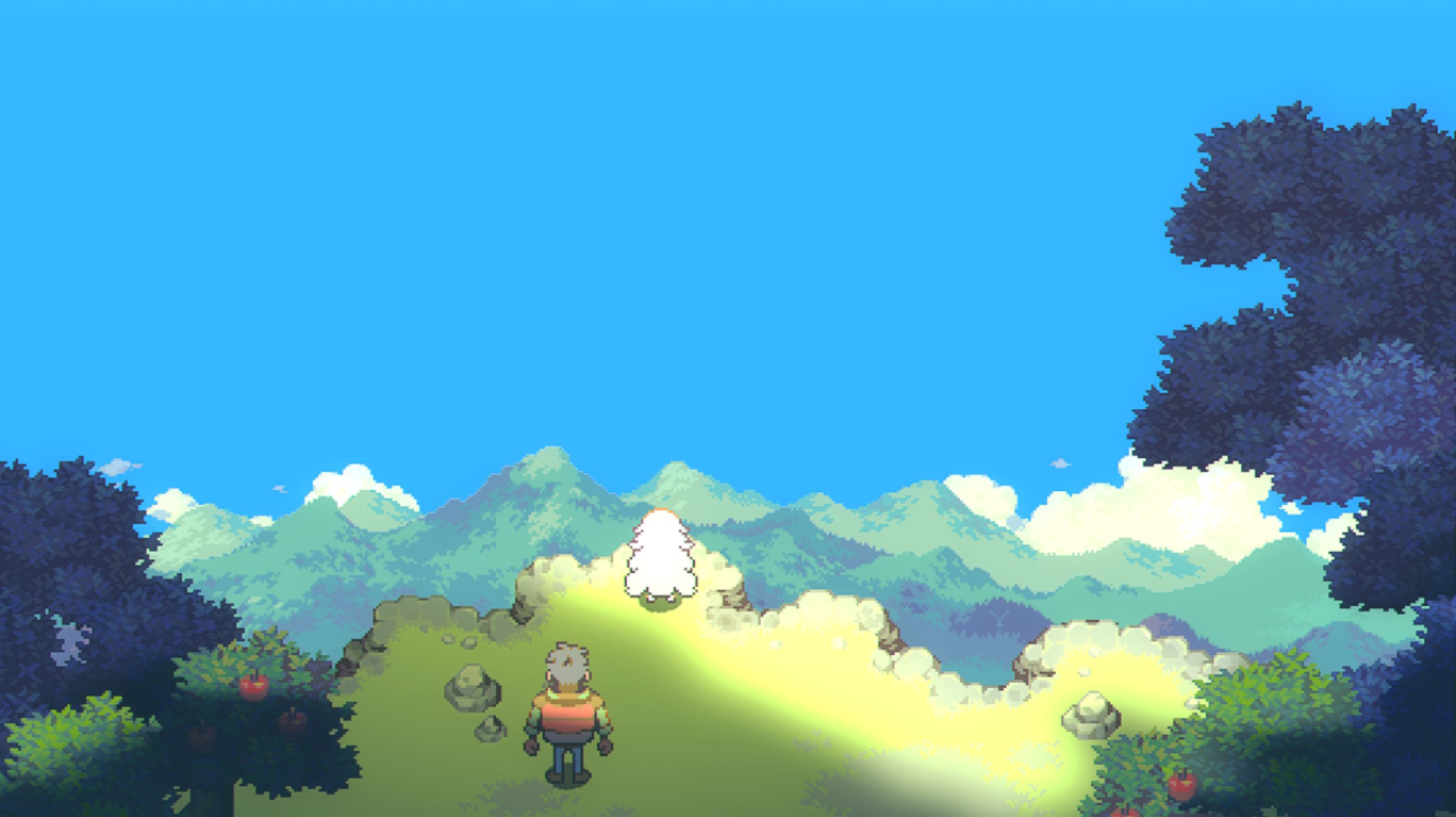
Eastward is brimming with unique characters, and even NPCs who are just going about their days get to shine. The downside is that when everyone in the room is weird and kooky, no one really stands out. It feels like being hit with a constant wall of chatter where it's hard to tell what's important, because everything is given equal weight. Plus, getting to really know certain characters only for them to never be mentioned again means it becomes hard to feel attached to anyone.
Relatively early on John attracts an admirer called Uva, and the romance element is sudden and simplistic, with a group of grannies who meddle in it, each one needing to have their own 'bit' as part of the comedy. They're unnecessary and overbearing—without this whole bit out the story would flow a little better. It’s a shame as individually the cast are all brilliant, but they have to compete with each other for your attention. John's stoic steadfastness stands out because he's the only one who never speaks.
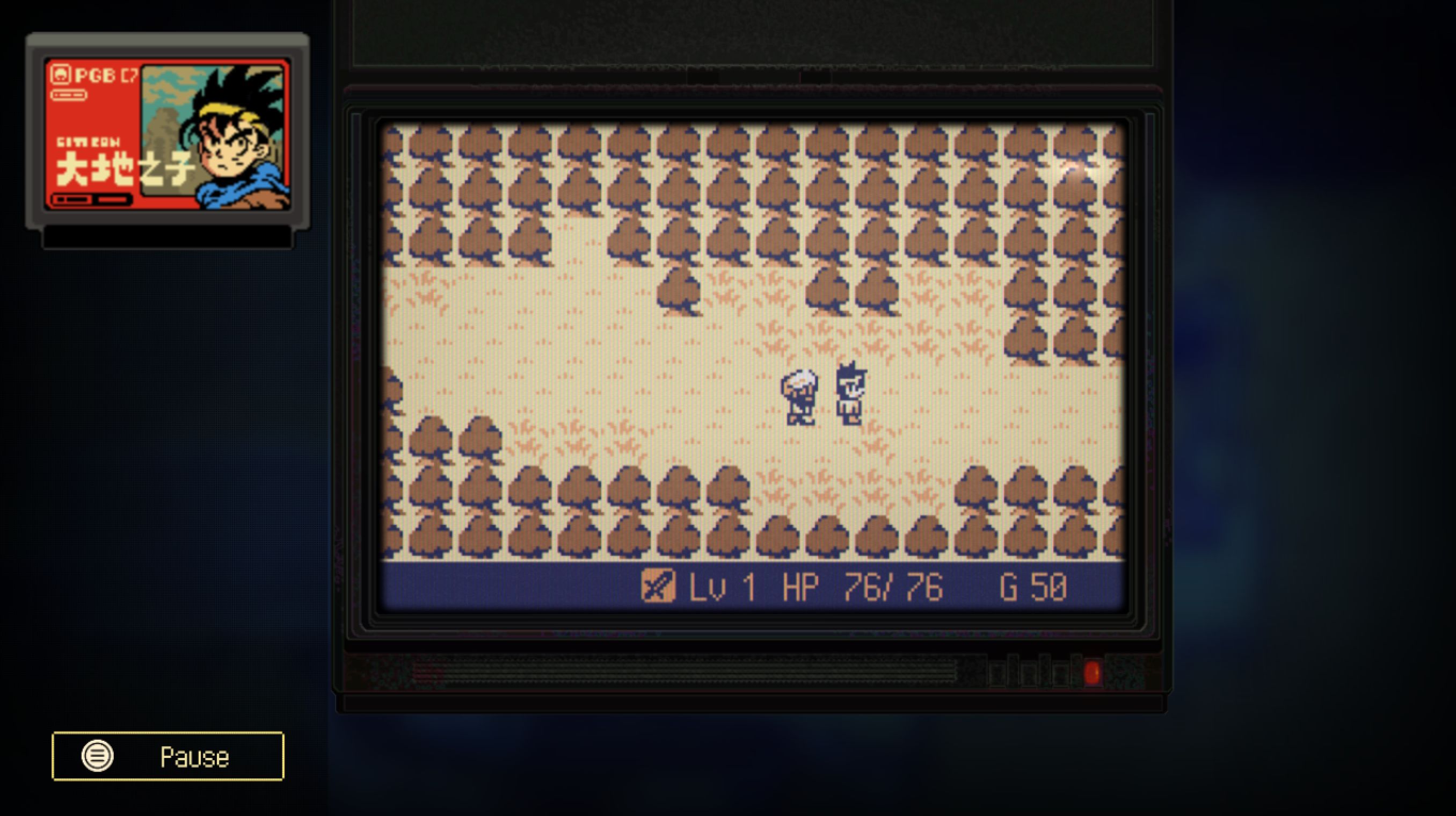
Alongside the main story are terminals that let you play an old-school 8-bit RPG called 'Earthborn' that features classic turn-based combat like in early Dragon Quest games. It's surprisingly deep, and hearing various characters enthuse about it on your journey makes the world Sam and John are exploring feel even more real. Cooking and finding new recipes to create healing items is another fun distraction and features a lovely bouncy animation that's as joyous as the one in Breath of the Wild. However, there isn't nearly enough space in your backpack to store your cooked items or enough stoves to cook at, making it hard to heal up in dungeons.
As a tribute to RPGs of the '90s, Eastward is wonderful, with an atmosphere to be savoured. However, while the central mystery is captivating, it doesn’t quite nail bringing all of the different threads together, leaving a few plot holes open at the end. It also struggles to keep up the momentum and characters sometimes feel overwritten. I've enjoyed basking in sun-dappled forests and cowering in abandoned subway stations, but I was also willing certain bits to just get on with it. Eastward was never going to reach the same heights as its inspirations, but it makes a commendable effort.
Worth playing for the atmosphere even though its pace and plot are uneven.
